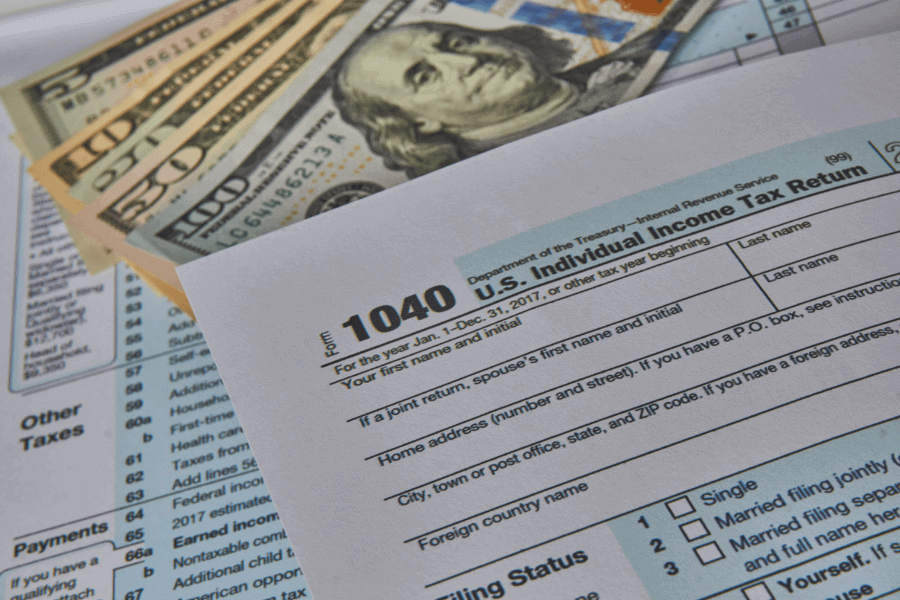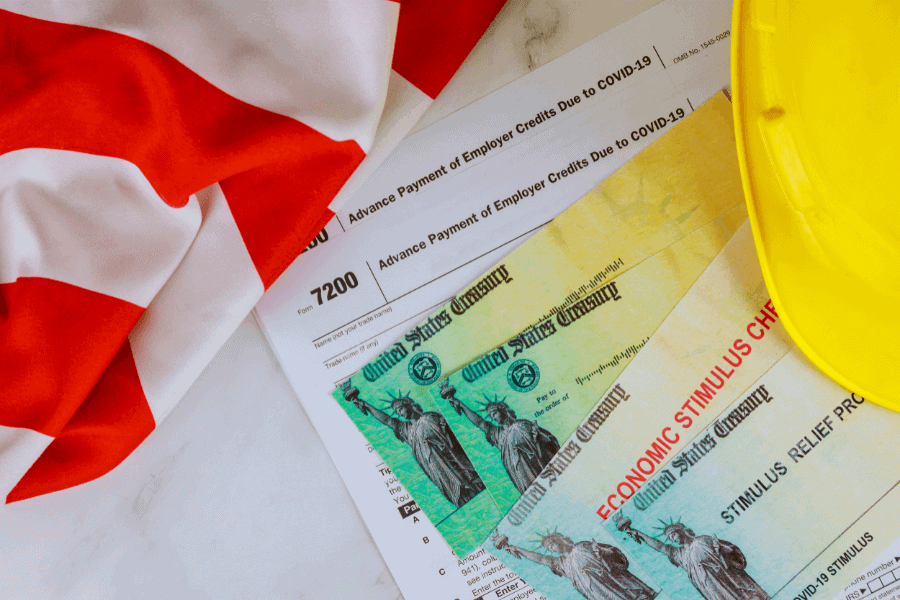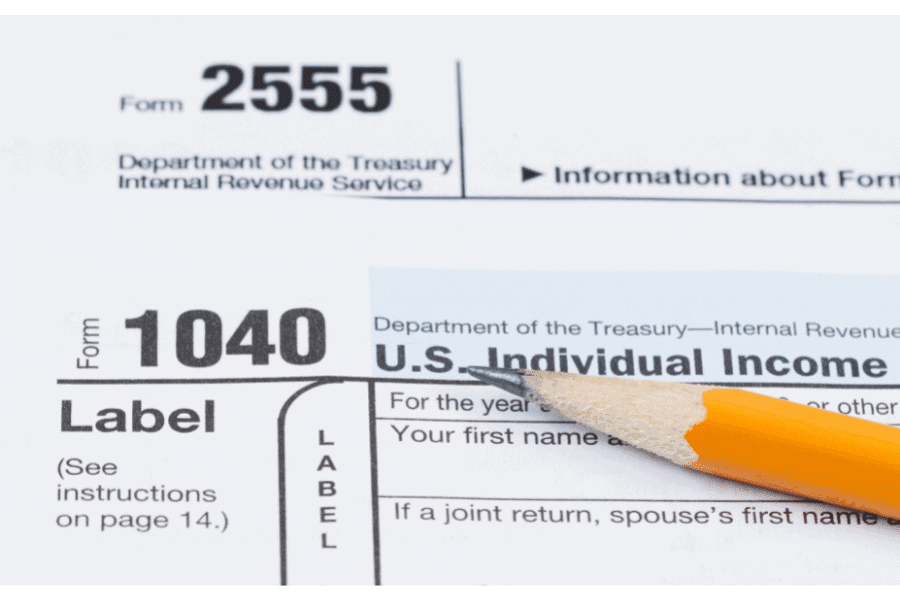IRS Tax Relief for Expats Impacted by COVID-19
October 18, 2022
Dateline: Merida, Mexico
The coronavirus pandemic has limited travel in many areas of the world and by doing so has changed the plans of many expats. If your global tax plan was impacted by COVID-19 in 2020, you may still qualify for tax benefits such as the 2020 Foreign Earned Income Exclusion.
The COVID-19 pandemic was a global emergency that no one had planned for. Unless you saw it coming in your crystal ball, it probably wasn’t considered when creating your holistic global tax plan.
Most people and government bodies simply were not prepared for something of this scale. Many places went into crisis mode, shutting down travel and immigration. This caused some expats to be sent back to their home countries while others weren’t allowed in their home country if they had traveled to country XYZ.
Tax laws for US persons required them to pay US income tax based on their citizenship, green card status, and time spent within the country. Normally, there are exclusions offered to US persons who spend a majority of their time outside of the US.
However, COVID-19 has made it so that many US expats wouldn’t qualify for the Foreign Earned Income Exclusion in 2020. The pandemic has also kept some foreign citizens in the United States for longer than they had planned, which would typically pull them into the US tax net through the substantial presence test.
Because of this, the Internal Revenue Service (IRS) has issued special relief for those whose global travel plans were impacted by COVID-19 in 2020. As you continue to read, you’ll find how the IRS relief program works and exactly who qualifies.
What is the Foreign Earned Income Exclusion?

For a brief review, the Foreign Earned Income Exclusion (FEIE) is a tax exclusion for US persons living overseas. It allows you to exclude the first $100,000 plus of your income from US federal income tax. The exact number excluded changes each year to account for inflation.
To qualify for the Foreign Earned Income Exclusion, you need to pass one of two tests: the physical presence test or the bona fide residence test.
The physical presence test requires that you spend at least 330 days outside of the United States.
The bona fide residence test requires that you have an established tax home in a country outside of the United States.
You can find a full in-depth article on the FEIE here.
Foreign Earned Income Exclusion 2020

So you may not have been able to spend enough time outside of the US to qualify for the Foreign Earned Income Exclusion in 2020 due to COVID-19 travel restrictions.
You are definitely not alone as the pandemic disrupted many people’s plans. Some individuals who would have normally qualified for the Foreign Earned Income Exclusion in 2020 have gotten stuck in the US for more time due to the pandemic and no longer pass the physical presence or bona fide residence tests.
Because of this, the IRS is accommodating these individuals through the Revenue Procedure 2020-27.
This relief program applies to any US person who:
1 – was required to leave China between December 1, 2019, and July 15, 2020
Or
2 – was living in a foreign country outside of the US and was required to leave between February 1, 2020, and July 15, 2020.
To qualify, you need to have an established foreign residency or have been physically present in China or the country that required you to leave before the first date listed. If you received residency in a foreign country after February 1, 2020, you do not qualify.
This relief will not allow days spent away from that foreign country because of COVID-19 to prevent you from qualifying for the Foreign Earned Income Exclusion.
Those who qualify for IRS relief can exclude any income that they earned while living abroad for the 2020 tax year even if they did not spend a full 330 days overseas or pass the bona fide resident test. However, you may not exclude income earned after you returned to the United States.
2020 Taxes for Non-US Persons

In addition to impacting US persons living overseas, some non-US persons may have been drawn into the US tax net because of the coronavirus pandemic.
If you were stuck in the US, you may qualify to pay US taxes under the substantial presence test. Because of this, the IRS is providing relief for foreign citizens spending time in the United States.
This relief allows foreign citizens in the United States to exclude 60 consecutive days of US presence when determining tax residency in the US if they experienced travel disruptions due to the coronavirus pandemic.
What is the Substantial Presence Test?

In normal years, if a foreign citizen spends too much time within the United States, they may be subject to file and pay US taxes under the substantial presence test.
You will be considered a tax resident of the United States under the IRS substantial presence test if
– you spend 31 days in the US during the current year, and
– spend 183 days in the US over a 3 year period. This is divided up into:
– all the days spent in the US during the current year
– ⅓ of the days spent in the US during the previous year
– ⅙ of the days spent in the US two years before the current year.
Those who qualify under the substantial presence test will be obligated to file a US tax return and pay US income tax.
Through the IRS relief program foreign citizens who ended up stuck in the US in 2020, due to COVID-19, can exclude 60 consecutive days from counting against you.
For example, if COVID-19 travel restrictions prohibited you from leaving the US and returning to your home abroad for around 90 days, 60 of those days spent in the US will not count towards the substantial presence test. Once you subtract the 60 days that are exempt from the IRS COVID-19 tax relief, you spent only 30 days in the US — less than the 31 days it takes to trigger the substantial presence test.
How to Claim IRS Relief

If you qualify for the IRS relief and plan to claim it, you’ll write “Revenue Procedure 2020-27” on the top of Form 2555 that you will attach to your income tax return.
You’ll then need to file Form 2555, even if you do not have to pay any tax. US persons are liable to file their taxes each year. It doesn’t matter if you owe anything or if you are living inside or outside of the US.
By filing Form 2555, you’ll be able to claim the Foreign Earned Income Exclusion and IRS tax relief for 2020. If you don’t file it, you won’t be able to claim the Foreign Earned Income Exclusion and your income will be taxed normally.
Form 2555 has to be filed separately for each individual. Even if you are filing jointly with your spouse, you will each need to file Form 2555 on your own to claim the Foreign Earned Income Exclusion.
The deadline for US expats to file their taxes is June 15. You can apply for an extension to October 15.
Conclusion
If your travel plans didn’t go as you expected in 2020 — whether you were asked to leave your country of residence, failed the US’s substantial presence test, or were trapped on a boat — you may be able to still claim tax relief like the Foreign Earned Income Exclusion.
Taxes for expats can already be complicated —and have been complicated further due to COVID-19. Working with a tax professional can help you through this complex process.
If you’d like to be more prepared in the future, the team at Nomad Capitalist can help you create a Plan B that will protect you and your assets and allow you to live freely.


Does Puerto Rico Pay Taxes to the US?
It’s a common question and one that often fuels confusion, debate, and a fair share of misinformation – Do residents of Puerto Rico actually pay US federal taxes? When most people think of US tax obligations, they naturally assume they apply uniformly across all US citizens. But when it comes to Puerto Rico, things are […]
Read more

Zug Canton Taxes: The Ultimate Destination for Wealth Management in Switzerland
Switzerland’s global reputation is built not just on stunning views of Alpine peaks and serene lakes but also on a foundation of exceptional quality of life, world-class infrastructure and investor-friendly tax policies. The results speak for themselves: efficient public transport seamlessly links cities and villages; the standard of living regularly ranks among the highest in […]
Read more

How Smart Investors Use Venture Capital to Build Wealth
Big companies like Google, Amazon, Facebook and Apple all started out as bold ideas backed by venture capital. Decades later, the same firms are household names, as familiar to most people as electricity, the internet, or the telephone. But hindsight is a fickle friend. The truth is, it wasn’t always so obvious they’d succeed. These […]
Read more




